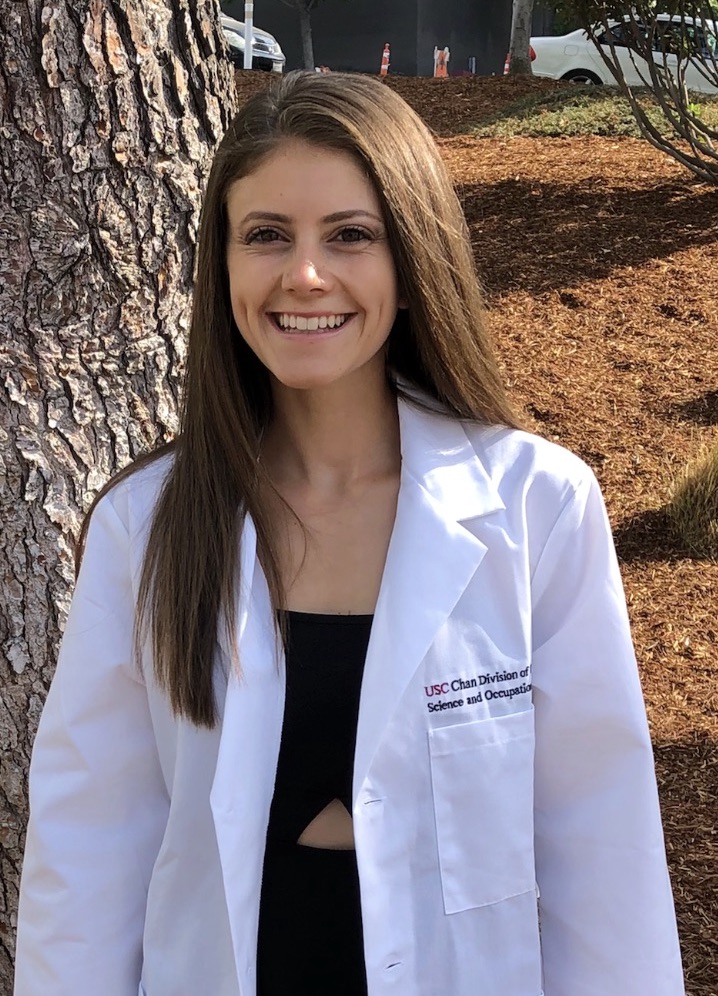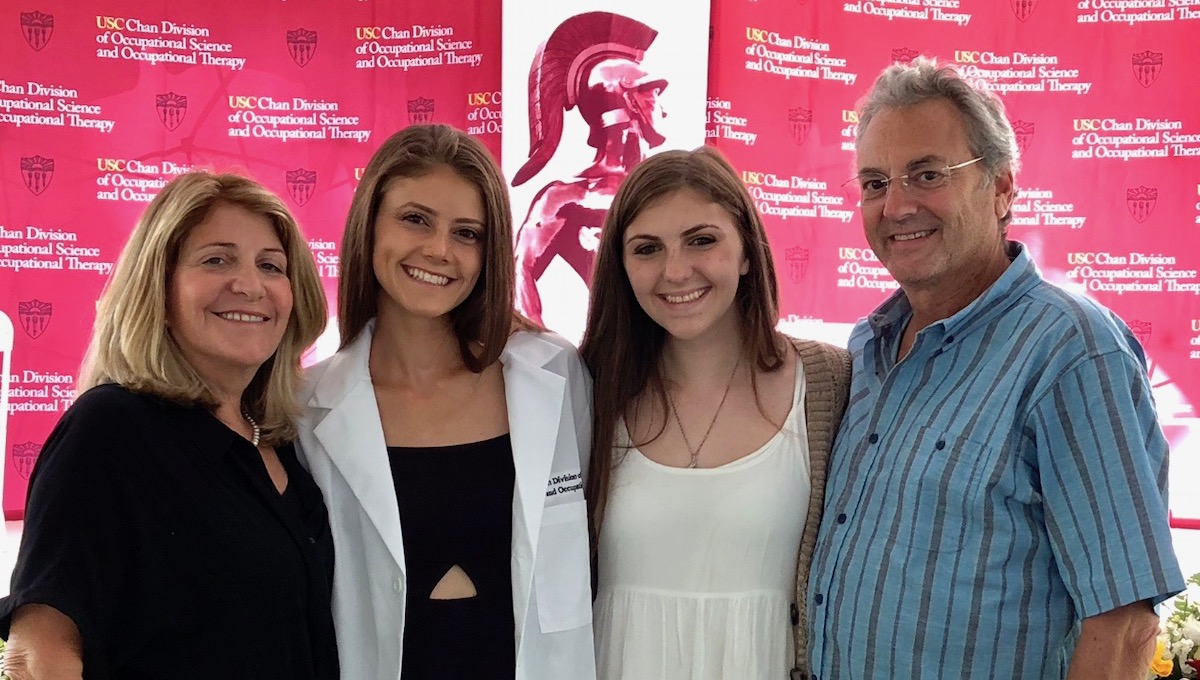From Recovery to Aspiring Therapist
February 25, 2019
Rachel Eckerling MA ’20, BS ’19 battled anorexia for 13 years and met with more than 70 therapists on her route to recovery. For National Eating Disorders Awareness Week from Feb. 25 to Mar. 3, the now-recovered 22-year-old bachelor’s–to-master’s student shares her definition of anorexia and discusses how her own experiences will inform her future occupational therapy practices.
By Joyce Yoo
Challenging occupation
“My eating disorder is like a little voice in the back of my head that tells me that I need to be thinner or that I need to engage in certain behaviors in order to be safe and accepted. Eating was definitely a challenging occupation for me,” Eckerling says.
Thoughts about food and the times surrounding meals almost always induced stress. In a culture where social connections are made around mealtimes, Eckerling found it difficult to go out to restaurants with friends and family. Her mind was so fixated on what and how much to eat that it would become all-consuming, extracting her from living in the present along with the ones she loves.
“The eating disorder was comforting in a way because it was pretty constant and provided me with a false sense of control. When in reality, this ‘best friend’ in my head was the one actually trying to kill me.”
Even outside of specific mealtimes, Eckerling found herself engaged in a constant self-dialogue that took her away from the very activities that she engaged in as a student.
“‘Did I eat too much today?’ ‘Have I been too sedentary?’ ‘Will I eat my next meal?’”

Rachel Eckerling | Photo courtesy of Rachel Eckerling
Grad student self-care
Now imagine being a graduate student, a role that presents many challenges, and add on the many physical and emotional layers of recovery. But throughout her experience with many different kinds of therapy, Eckerling identified specific strategies to maintain balance in school. She says it is important to have a structured schedule with leeway for flexibility, and also recognizes how a full night’s sleep impacts her mood and arousal.
“Without sleep, our brains do not function at full capacity.”
When studying, Eckerling makes it a point to stand up and move around at least once every hour, including grabbing a snack.
“Me-time” is most important after the day’s classes are done. Eckerling typically heads to the gym, goes on walks or reads. It’s her way of counteracting burnout and recharging herself for productive studying during evenings.
“The most important thing is to listen to your body. If you aren’t taking care of yourself, you cannot do your best work as a student.”
Future occupational therapist
Eckerling discovered that her experience with an eating disorder has made her a better listener.
“I know what it is like to seek out help and not feel like I am truly being heard.”
With each life experience being so different from the next, therapists must actively and reflectively listen to their clients’ views without judgment. Eckerling says her own experiences as a patient and client opened doors to deeper empathy with others.
“I may not know what my client is exactly going through, but I know what it feels like to struggle and not feel 100 percent myself.”
That familiarity with frustration can become a key to connecting with her future patients. She has learned various therapeutic methods and her own exposure continues to shape her therapeutic use of self.
“Recovery has taught me patience, compassion and kindness. It has taught me that humans are resilient. I want to help give others hope that they can improve themselves and live their lives to the fullest.”
OT and eating disorders
“Eating disorders take away and isolate you from a variety of experiences, from shopping with friends, to managing a healthy relationship with physical activity, and engagement during mealtime.”
Current treatment approaches lack an emphasis on occupation and the guiding principle that a person is who they are because of the activities that they do. Treatments tend to generalize individuals homogenously, and patients can often lose themselves by identifying with their diagnosis. Occupational therapists can help remind individuals that they are so much more than their thoughts or behaviors. By engaging in healthy and meaningful behaviors, occupational therapists can help people regain a sense of self.
Reaching out for help
“Reach out. Reach out to family, friends, your physician or anyone you trust.”
Some people may never think they are “sick enough” to warrant professional help or treatment. But if thoughts or behaviors about food or your body are interfering with your daily life, that in itself is enough to seek — and receive — support and relief. No one deserves to go through this alone; people will support and love you through it. National Eating Disorders Association (NEDA) is one organization for resources and support to individuals and families who are trying to navigate and understand eating disorders.
“I have learned so much about myself, others and the world through years of recovery. I want to give back to the communities fighting their own battles. I am excited to use my knowledge and experience to help others through their own difficulties. I want to give back to individuals fighting for their lives.”
To learn more about Rachel’s journey, check out a video she made in collaboration with Special Books by Special Kids.
If you or a loved one is battling an eating disorder, please reach out to many of the health and wellness services offered on USC’s campuses by calling USC Student Health at 213-740-WELL (9355).
Learn more about National Eating Disorders Awareness Week at nationaleatingdisorders.org.
⋯
Next by tag Health and Wellness ⟩ Students ⟩






